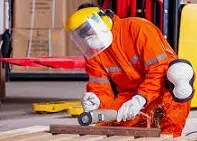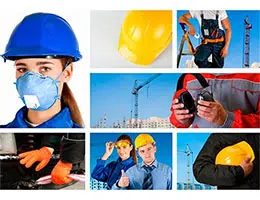 Protection is the act and consequence of protecting : caring, safeguarding. Labor , meanwhile, is that linked to work (a paid activity).
Protection is the act and consequence of protecting : caring, safeguarding. Labor , meanwhile, is that linked to work (a paid activity).
The idea of labor protection , therefore, is used to refer to the mechanism , resource or program that protects a worker . The concept can be used in different ways according to each specific situation.
The term labor protection period refers to the time in which a worker continues to have social security, medical insurance or similar benefits despite not making contributions. In this way, when a person is fired from a job, they maintain these benefits for a period established by law .
This benefit aims to ensure that the individual has guaranteed access to health while looking for a new job. This gives you a grace period until you are able to contribute to the social security system again.
In a broader sense, labor protection is associated with measures that guarantee the integrity of the worker in the development of their activities . These are safety elements that minimize the risk of injury or illness.
Companies must provide appropriate conditions for work . In this framework, labor protection includes the duty to provide employees with suits , helmets , gloves , footwear , etc. as necessary to reduce the likelihood of damage.
When individuals are exposed to possible impacts, gases , dusts, excessive noise and other variables, labor protection equipment becomes essential. Many times the use of this equipment is mandatory .
This leads us to a reality that is as worrying as it is true: while in some countries these requirements are legal and mandatory, in others they are not, despite the fact that ignoring precautions carries a considerable risk to the health of workers. As happens in other areas, citizens tend to become accustomed to the irregularities of their respective governments, in part because they must answer to them and comply with their rules; For this reason, they come to consider it normal that their company does not require them to use special clothing for dangerous jobs, for example.
 There is a clear distinction between large companies, especially if they are multinational, and small or family ones with respect to labor protection policies: the former tend to have a more rigid organization , with an almost unwavering respect for the rules, since all Branches respond to headquarters, which frequently sends specific staff to make sure everything is in order; the latter, on the other hand, can be much more flexible.
There is a clear distinction between large companies, especially if they are multinational, and small or family ones with respect to labor protection policies: the former tend to have a more rigid organization , with an almost unwavering respect for the rules, since all Branches respond to headquarters, which frequently sends specific staff to make sure everything is in order; the latter, on the other hand, can be much more flexible.
This can lead to a disregard for standards for fear of fraying ties between workers and employers. In a family business, it is common for very close friendships to emerge and for ranks to blur; Faced with the need to wear a helmet for a certain task, for example, the employee may ask his boss to allow him to ignore it, and negligence due to overconfidence can lead to unfortunate accidents .
Precisely, labor protection is not sustained solely by the efforts of employers but also thanks to the acceptance of the standards by workers, who must commit to complying with them at all times, without exception. Putting on a helmet only when we are in the presence of supervisors is almost the same as never doing it and reflects that we have not understood the objective of such imposition.
Like any other aspect of the business environment, specific labor protection clothing evolves over time and technological advances, which is why it is important to stay up to date to offer employees the best quality .
